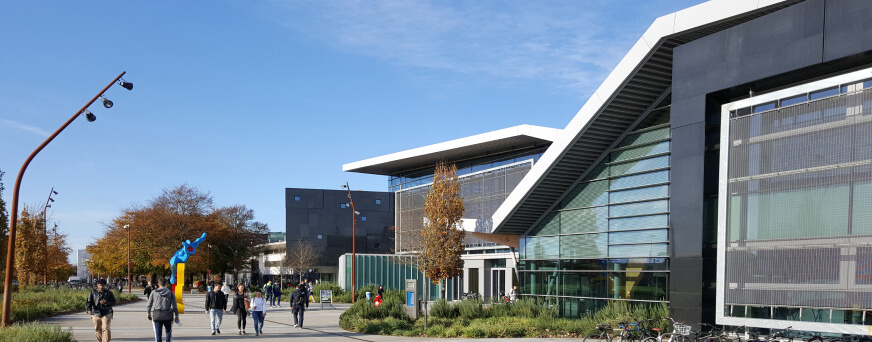Explore University of McCordsville’s Eligibility Criteria for Students Worldwide
High School Diploma, GED or equiv. International Education
84 Hours
1 Year (Self-Paced) Program
14
This course provides a sociological perspective on crime and criminal justice by treating social structure and social inequality as central themes in the study of crime and major factors in society's treatment of criminals.
Sociology is a comprehensive course that offers you a global perspective to help you better understand your own lives, provides strong focus on social diversity that allows you to see the impact of race, class, and gender, and focuses
This course examines corrections from an academic view and from those who are at the center of the system. It includes correctional history and theory, yet concentrates on what professionals do, why they do it, and the challenges they face every day.
This course contextualizes current events within the criminal justice literature. Highlighting a variety of high-interest issues, it explains you how recent happenings relate to criminal justice studies.
This course explains the procedural aspects of the criminal justice system systematically, making the concepts easy to apply to any state’s specific procedural laws and procedures systematically.
This course presents crime detection as a dynamic field relying heavily on the past experiences of investigators as well as recent practical and technological innovations.
This course builds the procedural knowledge and real-world skills needed for today’s paralegal. It places an emphasis on profession and skills. Places an emphasis on basic foundations including: developing critical thinking and procedural skills; learning about technology applications in law office; and understanding how to handle ethical situations in workplace.
This course makes the comparative approach far more understandable and accessible, helping you recognize the growing importance of an international perspective. It organizes key concepts in a sequence that you will already find familiar; progressing from issues of law to the agencies of police, courts, and corrections.
This course offers an overview of the foundations of offender counseling and rehabilitation. Psychodynamic, behavioral and group approaches are discussed as well as the diagnosis, assessment and classification as being the core strategies for identifying and responding to important security, mental health and treatment needs of the offender.
This course will provide an opportunity for you to examine and confront one of the most vexing criminal justice issues – how should we punish those who break our laws. This course will explore theories of criminal punishment in the context of examining the historical evolution of sentencing policies and procedures.
This course discusses the research methods used in corrections. It introduces Criminal Justice Research Methods along different aspects of each method. It includes topics such as Sampling and Survey Research, Secondary Analysis, and Ethics in Criminal Justice Research.
This course considers special topics in corrections that are not ordinarily evaluated in depth in other courses, such as the Issues and Trends in Policing, Dynamics of the Criminal Court, and Criminal Trial.
This course presents an examination of the theory and practice of probation and parole, including pre-sentence investigation, supervision of probationers, parole administration and services, treatment theory, parole officers, juvenile services, and new concepts (such as community-based corrections) that have impacted traditional probation and parole theory.
This course focuses on societal responses to the offender. It Traces the evolution of practices based on philosophies of retribution, deterrence, and rehabilitation. It also reviews contemporary correctional activities and their relationships to other aspects of the criminal justice system.
| Tuition Fee Breakdown 1 | Cost |
|---|---|
| ASSOCIATE TO BACHELORS DEGREE | $18,480 |
| Medical Insurance | $0.00 |
| Personal Expenses | $0.00 |
| Study Materials | $0.00 |
| Food Cost | $0.00 |
| Total Tuition Fee | $18,480 |
At University of McCordsville, we champion the convergence of affordability and opportunity. Our steadfast commitment to accessible education guarantees that high-quality learning is accessible to all. By eliminating financial obstacles, we grant students the freedom to thrive without the burden of overwhelming tuition costs, empowering them to carve out a bright and promising future.

| Topics Covered in This Course: | |||||||||||||||||||||||||||||||||||||||
|
| Topics Covered in This Course: | |||||||||||||||||||||||||||||||||||||||||||||||||||||
|
| Topics Covered in This Course: | |||||||||||||||||||||||||||||||||||||
|
| Topics Covered in This Course: | |||||||||||||||||||||||||||||||
|
| Topics Covered in This Course: | |||||||||||||||||||||||||||||||
|
| Topics Covered in This Course: | |||||||||||||||||||||||||||||||||||||||||||||||||||
|
| Topics Covered in This Course: | |||||||||||||||||||||||||||
|
| Topics Covered in This Course: | |||||||||||||||||||||||||
|
| Topics Covered in This Course: | |||||||||||||||||||||||||||||||||||
|
| Topics Covered in This Course: | |||||||||||||||||||||||||||||||||||||||||||||||||
|
| Topics Covered in This Course: | |||||||||||||||||||||||||||
|
| Topics Covered in This Course: | |||||||||||||||||||||||||||||||||||
|
| Topics Covered in This Course: | |||||||||||||||||||||||||||||||||
|
| Topics Covered in This Course: | |||||||||||||||||||||||||||||||||||||
|
“Every minute spent under the guidance and supervision of the University of McCordsville was worth it for a student like me.”

“An amazing online platform, supportive staff, and valuable career resources. I highly recommend the University of McCordsville.”

“Scholarship opportunities, personalized support, and impactful learning. I am grateful for my journey at the University of McCordsville!”
